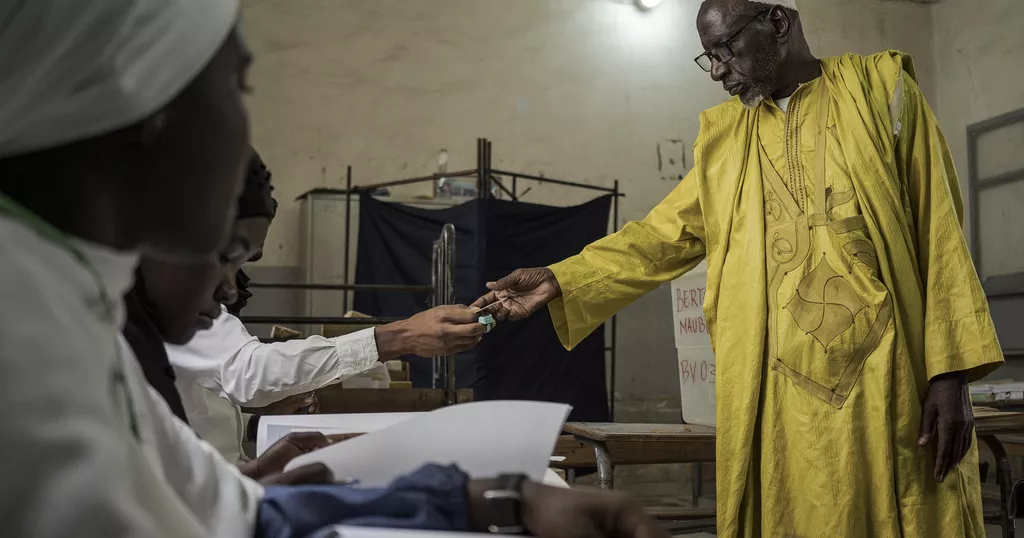Senegal’s ruling Pastef party claims victory in snap legislative electioins
3 min read
Senegal’s ruling Pastef party, led by President Bassirou Faye, has claimed a decisive victory in the country’s snap legislative elections, held on Sunday. The outcome of the vote, which was peaceful and widely regarded as fair, marks a significant political milestone for Faye’s administration, just eight months after he assumed power.
Early results indicated that Pastef outperformed its two main opposition parties, consolidating its control over the National Assembly and securing a strong mandate for its reform agenda. This victory is seen as a critical endorsement of Faye’s promises to tackle corruption and improve the living conditions of Senegal’s citizens, particularly its youthful population, which has long struggled with high unemployment and soaring inflation rates.
Faye, who assumed the presidency in April following a landslide win in the presidential elections, has made no secret of his intentions to implement sweeping reforms. In his inaugural address, he vowed to combat corruption and reduce economic inequality, pledging to address issues such as job creation and inflation that affect Senegalese citizens on a daily basis.
However, Faye’s presidency has not been without controversy. Just six months into office, he dissolved the National Assembly, accusing opposition lawmakers of blocking his reform agenda. This move came after months of political gridlock, with the opposition-controlled parliament refusing to pass key pieces of legislation that Faye argued were necessary to fulfill his promises to the electorate. The dissolution of the assembly and the subsequent call for snap legislative elections were aimed at giving his party a more stable base of support in the National Assembly.
The legislative elections saw Senegal’s 7.3 million registered voters elect 165 members of parliament for five-year terms. While voter turnout was lower than in the presidential elections earlier this year, with only 49.72 percent of eligible voters participating compared to 61.3 percent in March, the results have still been hailed as a major victory for Pastef. Lower turnout is not uncommon in legislative races, particularly in countries where presidential elections tend to dominate political attention.
Despite the lower participation rate, Faye’s party is expected to have a clear majority in the new parliament, which should give his administration the leverage needed to push through his reform agenda without significant opposition. His party’s victory is seen as a mandate to continue pursuing its objectives, including reforms in key areas such as economic development, governance, and social welfare.
The success of Pastef in the legislative elections is also significant because it marks the consolidation of Faye’s political power just months after taking office. Following his presidential win, Faye faced a divided political landscape, with several strong opposition parties challenging his authority. By securing a majority in the National Assembly, he is now in a better position to implement the changes he promised during his campaign.
In the aftermath of the election, several opposition figures, who were quick to acknowledge the results, congratulated Pastef on its success. Despite their electoral loss, many opposition leaders expressed their willingness to engage in constructive dialogue with the government to address the pressing issues facing Senegal, including unemployment and economic instability.
The lower voter turnout, while a concern for some observers, is not expected to undermine the legitimacy of the election results. Faye’s party won a clear mandate from the electorate, and his administration now has the political capital to address the challenges that have dominated public discourse in Senegal over the past several years.
Faye’s next challenge will be to deliver on his campaign promises. With a parliamentary majority now secured, he has an opportunity to enact the reforms that many Senegalese citizens are eagerly awaiting. The pressure will be on his government to use this mandate to tackle corruption, improve the economy, and create jobs for a population that has long been frustrated with the status quo.
In conclusion, the snap legislative elections in Senegal have solidified the political power of President Bassirou Faye and his ruling Pastef party. With a clear majority in the National Assembly, Faye’s government now has the opportunity to advance its reform agenda and address the key issues of unemployment and inflation that have plagued the country. While the lower voter turnout may raise some concerns, the results have nonetheless given Faye the mandate he needs to pursue his vision for Senegal’s future.






